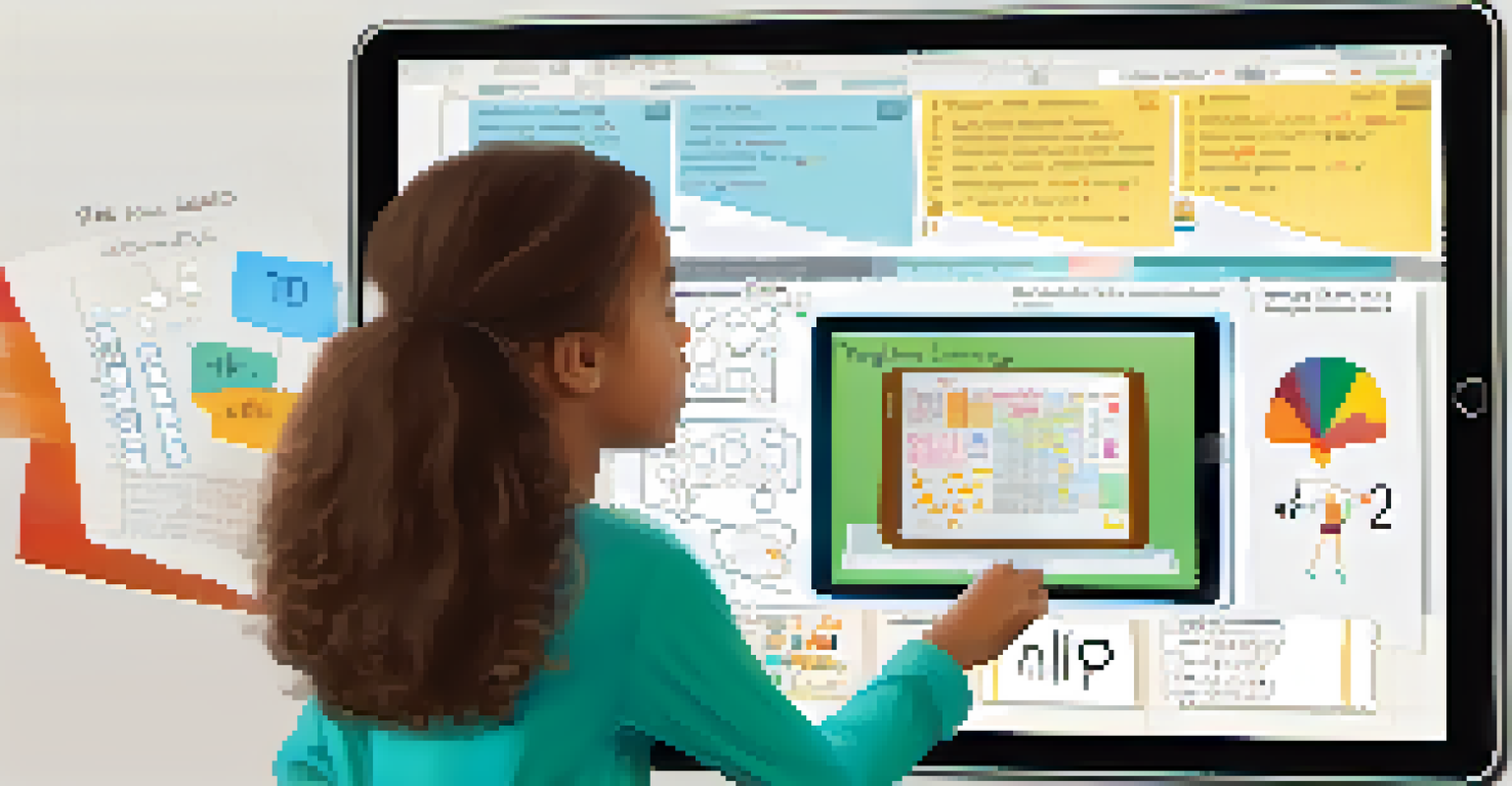Fostering a Growth Mindset Through Adaptive Learning Techniques

Understanding Growth Mindset and Its Importance
A growth mindset is the belief that abilities and intelligence can be developed through dedication and hard work. It's a powerful concept that encourages resilience and a love for learning. When individuals adopt this mindset, they are more likely to embrace challenges and persist in the face of setbacks, paving the way for personal and professional growth.
The mind is everything. What you think you become.
In contrast, a fixed mindset believes that talents are innate and unchangeable. This can lead to a fear of failure, discouraging individuals from attempting new things. By fostering a growth mindset, people can unlock their potential and approach obstacles as opportunities for improvement.
Research shows that children and adults who adopt a growth mindset tend to perform better academically and professionally. This understanding sets the stage for the integration of adaptive learning techniques, which can further promote this mindset in various learning environments.
What Are Adaptive Learning Techniques?
Adaptive learning techniques are personalized learning approaches that adjust the content and pace based on an individual's unique needs. Think of it as a GPS for your educational journey, guiding you around obstacles and highlighting the best routes to reach your destination. These techniques leverage technology to tailor experiences for each learner, ensuring they receive the right support when they need it.

For example, an online math platform might present more challenging problems to a student who is excelling, while offering additional resources and tutorials to someone struggling. This targeted approach not only enhances understanding but also boosts confidence, reinforcing the belief that improvement is always possible.
Growth Mindset Fuels Learning
A growth mindset empowers individuals to embrace challenges and see failures as opportunities for growth.
By incorporating adaptive learning into educational settings, instructors can cater to diverse learning styles and paces, creating an environment that nurtures a growth mindset among all students.
Benefits of Combining Growth Mindset with Adaptive Learning
Combining a growth mindset with adaptive learning techniques creates a powerful synergy that enhances the educational experience. When learners see that their efforts lead to improvement, they become more engaged and willing to take on new challenges. This leads to a cycle of continuous growth, where students are motivated to push their limits and explore new concepts.
In a growth mindset, challenges are exciting rather than threatening. So rather than thinking, 'Oh, I'm going to reveal my weaknesses,' you say, 'Wow, here's a chance to grow.'
Additionally, adaptive learning helps to identify and address gaps in knowledge, enabling learners to tackle weaknesses without feeling overwhelmed. This personalized approach fosters a safe space for experimentation, allowing students to fail without fear and learn from their mistakes.
Ultimately, this combination not only boosts academic performance but also cultivates resilience and a lifelong love for learning—a vital skill in today's rapidly changing world.
Creating a Supportive Learning Environment
A supportive learning environment is essential for fostering a growth mindset through adaptive learning. This means creating spaces where mistakes are seen as learning opportunities rather than failures. Educators should encourage open communication, allowing students to share their thoughts and challenges without judgment.
Incorporating positive reinforcement can also help. Celebrating small victories and showing appreciation for effort rather than just results encourages students to focus on their growth journey. This builds confidence and motivates learners to take on new challenges.
Adaptive Learning Personalizes Growth
Adaptive learning techniques tailor educational experiences to individual needs, enhancing engagement and understanding.
Moreover, integrating collaborative projects can promote peer support and learning, reinforcing the idea that everyone is on a unique path towards growth. Such an environment empowers students to take ownership of their learning.
Leveraging Technology for Adaptive Learning
Technology plays a crucial role in implementing adaptive learning techniques. From intelligent tutoring systems to interactive educational software, there are countless tools available to help personalize the learning experience. These technologies analyze student performance in real-time, making adjustments to content delivery based on individual progress.
For instance, platforms like Khan Academy utilize algorithms to track student performance and suggest tailored exercises, ensuring that each learner is appropriately challenged. This immediate feedback loop encourages students to engage with content actively and take charge of their learning journey.
By leveraging technology in a thoughtful way, educators can create dynamic learning experiences that nurture a growth mindset and promote continuous improvement.
Measuring the Impact of Adaptive Learning
Measuring the impact of adaptive learning techniques on fostering a growth mindset is essential for continued success. Educators can use assessments, surveys, and analytics to gauge student engagement and performance over time. This data helps to identify what works and where adjustments may be needed, ensuring that the learning experience remains effective.
For example, tracking a student's progress can reveal trends in their performance, allowing educators to celebrate improvements and identify areas where additional support might be necessary. This ongoing assessment reinforces the growth mindset by demonstrating that progress is possible and measurable.
Lifelong Learning Cultivated
Fostering a growth mindset leads to a lifelong pursuit of learning, enabling individuals to adapt and thrive in changing environments.
Ultimately, this data-driven approach not only informs instructional decisions but also empowers students to recognize their own growth and capabilities, reinforcing the belief in their ability to improve.
Encouraging Lifelong Learning Through Growth Mindset
The journey of fostering a growth mindset through adaptive learning doesn't end at graduation. It's a lifelong process that extends beyond formal education into personal and professional realms. When individuals embrace the idea that they can always learn and grow, they are more likely to seek out new opportunities and experiences.
This mindset encourages curiosity and a willingness to step outside comfort zones, leading to the exploration of new hobbies, careers, or even volunteer opportunities. Lifelong learners are not only adaptable but also better equipped to thrive in a world that is constantly changing.

By instilling a growth mindset early on and reinforcing it through adaptive learning, we can cultivate a generation of individuals who view challenges as stepping stones rather than barriers, ultimately contributing to a more innovative and resilient society.